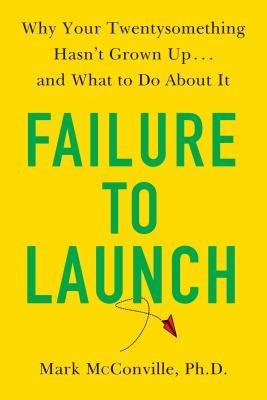Failure to Launch Book Summary
Why Your Twentysomething Hasn't Grown Up...and What to Do About It
TL;DR
Mark McConville's "Failure to Launch" offers parents a comprehensive guide to understanding and addressing the challenges their young adult children face in transitioning to independence, focusing on key skills necessary for adulthood.
What is Failure to Launch about
"Failure to Launch" addresses the pervasive issue of young adults who struggle to transition into independence, exploring the cultural and psychological factors contributing to this phenomenon. Dr. Mark McConville, a seasoned family clinical psychologist, argues that many twenty-somethings lack critical skills such as finding a sense of purpose, taking administrative responsibility, and cultivating interdependence. Drawing from decades of experience, he provides practical strategies for parents to help their children develop these essential skills. Addressing the complexities behind the 'failure to launch' syndrome, McConville emphasizes that this is not merely a personal failing but a widespread societal issue that transcends socioeconomic boundaries.
Failure to Launch 6 Key Takeaways
Understanding Failure to Launch Syndrome
Failure to launch syndrome is characterized by young adults struggling to leave home and achieve independence often due to a lack of essential life skills.
Key Skills for Transitioning to Adulthood
Successful transition into adulthood requires three critical skills: finding a sense of purpose, developing administrative responsibility, and cultivating interdependence.
Parental Involvement
Parents play a crucial role in helping their young adults develop necessary skills, and their approach can significantly impact their child's transition.
Consequences of Helicopter Parenting
Overly involved parenting can hinder a child's ability to learn independence, contributing to the failure to launch phenomenon.
Practical Parenting Strategies
McConville provides actionable tips for parents, including counseling and skills development checklists to support their children.
Addressing Societal Factors
The book explores broader cultural influences that contribute to young adults' dependency on their parents, offering insight into the societal shifts at play.
Top Failure to Launch Quotes
- "Independence is not just a goal; it is a skill that must be cultivated intentionally."
- "Understanding the roots of failure to launch is the first step in guiding our children toward adulthood."
- "As parents, our role is to empower, not to enable."
Who should read Failure to Launch?
This book is ideal for parents of young adults aged 18-29 who are struggling with independence issues. It provides practical insights and strategies to foster their children's growth, helping them navigate the transition to adulthood successfully.
Failure to Launch Best Reviews
- "Dr. McConville's insights are both timely and relevant, providing a roadmap for parents to navigate this complex issue.' - Psychology Today
- 'Failure to Launch is an indispensable resource for families struggling with young adulthood issues.' - Family Therapist Magazine
- 'A groundbreaking approach to a common societal dilemma, McConville's work is both informative and practical.' - The Parenting Journal
People also liked these summaries
Failure to Launch FAQs
Is 'Failure to Launch' a mental illness?
No, 'Failure to Launch' is not a recognized mental illness but rather a common term describing young adults struggling with the transition to independence.
What are some strategies to help a young adult overcome failure to launch?
Strategies include parental counseling, skill development programs, and encouraging independence through responsibilities and goal-setting.
What parenting styles contribute to failure to launch?
Helicopter parenting, which involves excessive control and involvement, can inhibit a child's ability to learn independence and navigate adulthood.


